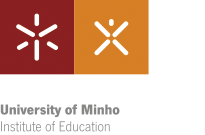The 3-year degree in Elementary Education trains elementary education professionals capable of intervening in various educational settings, by providing the adequate knowledge and skills that would enable them to: observe and evaluate different educational contexts within the area of early childhood and elementary education where they might develop their professional activity; build a global view on children and their life and learning contexts, developing skills for action in fields related to early childhood and elementary education; develop learning skills, critical and inventive thinking, intellectual curiosity and openness to diversity, in a perspective of lifelong training; access master's degrees in teaching pre-school and elementary and middle (5th-6th years) schools. This cycle of studies confers on graduates in Elementary Education knowledge and skills that enable them to exercise various professional functions, particularly those that focus on the child and on the network services that assist the child. These may be associated to syllabus enrichment programmes, extracurricular activities and activities to support the integration of children in schools.
2025/2026
Academic degree:
-
Bachelor (Bologna 1st cycle degree)
Duration:
6 curricular semesters
Place:
Gualtar Campus, Braga (UM)
Contacts
Institute of Education
Campus de Gualtar
4710-057 Braga
Tel:
+351 253604240
Fax:
+351 253604659
E-Mail:
cpedagogico@ie.uminho.pt
URL:
http://www.ie.uminho.pt
Description
The Bachelor's degree in Basic Education has a duration of 3 years and 180 ECTS credits. According to current legislation, it has a curriculum organized into four training components:
a) Teaching Area;
b) General Educational Area;
c) Specific Didactics;
d) Introduction to Professional Practice.
This study cycle forms basic education technicians capable of intervening in various educational contexts, equipping them with knowledge and skills to observe and evaluate these contexts, where they may engage in professional activities. It aims to build a comprehensive understanding of children and their life and learning contexts, fostering abilities for lifelong learning, critical and inventive thinking, intellectual curiosity, and openness to diversity. Graduates are prepared to access various master's degrees, some of which qualify them for teaching positions in Pre-school Education and the 1st and 2nd Cycles of Basic Education.
The program is taught by a faculty with doctoral degrees in diverse areas of knowledge. Their extensive experience and research in training educators and teachers for basic education enable the use and adaptation of various teaching methodologies, emphasizing active, reflective, investigative, experiential, and participative approaches that stimulate autonomous and collaborative student work.
During their education, students have the opportunity to observe different formal and non-formal educational contexts, reflect on these settings, and develop research and pedagogical innovation projects. They are also invited to participate in or organize pedagogical, cultural, and artistic events, such as seminars, workshops, showcases of work, etc. The study cycle provides appropriate infrastructure, scientific-didactic equipment, and materials necessary to achieve its objectives.
Key learning outcomes
Upon completing this degree, students will:
1. Demonstrate knowledge and understanding of the various training components relevant to professional performance in the context of Basic Education.
2. Develop a comprehensive and integrated view of Basic Education in its political, organizational, curricular, psycho-pedagogical, and social dimensions.
3. Apply integrated knowledge in professional practice, based on children's needs and contextual demands.
4. Demonstrate observational, analytical, evaluative, and reflective competencies regarding diverse educational contexts in Basic Education.
5. Utilize research skills to develop intervention projects for problem-solving and changing practices and contexts.
6. Communicate information, ideas, problems, and solutions effectively in collaborative professional interactions.
7. Display cognitive and metacognitive strategies that promote autonomy and lifelong learning.
8. Exhibit attitudes aligned with professional ethics, including responsibility, coherence, commitment, and respect for others.
Access to higher education
This course provides the technical-scientific capacity to access various Master's degrees, some of which qualify graduates for teaching positions in Pre-school Education and the 1st and 2nd Cycles of Basic Education, including master's degrees in: Pre-school Education; Pre-school Education and Teaching in the 1st Cycle of Basic Education; Teaching in the 1st Cycle of Basic Education and Mathematics and Natural Sciences in the 2nd Cycle of Basic Education; Teaching in the 1st Cycle of Basic Education and Portuguese and History and Geography of Portugal in the 2nd Cycle of Basic Education.
Careers
The Bachelor's degree in Basic Education, with its comprehensive acquisition of knowledge and skills in various scientific, technological, artistic, humanistic, and pedagogical areas, offers diverse career opportunities in the field of early and basic education. This study cycle qualifies graduates for non-teaching educational roles, particularly in:
- Support centers for supervised study and leisure activities;
- Institutions offering extended childcare;
- Pedagogical innovation projects;
- Animation projects in school and public libraries and mediation/promotion of reading;
- Support services for hospitalized or homebound children's studies;
- Support services for immigrant children;
- Support services for children with special educational needs.
Observations
This Study Cycle includes a component of initiation to professional practice that takes place in Kindergartens and Elementary Schools, aiming to provide students with an approach to professional contexts.
A3ES Accreditation status:
Resolution publication date:
Registry number at Ministry:

